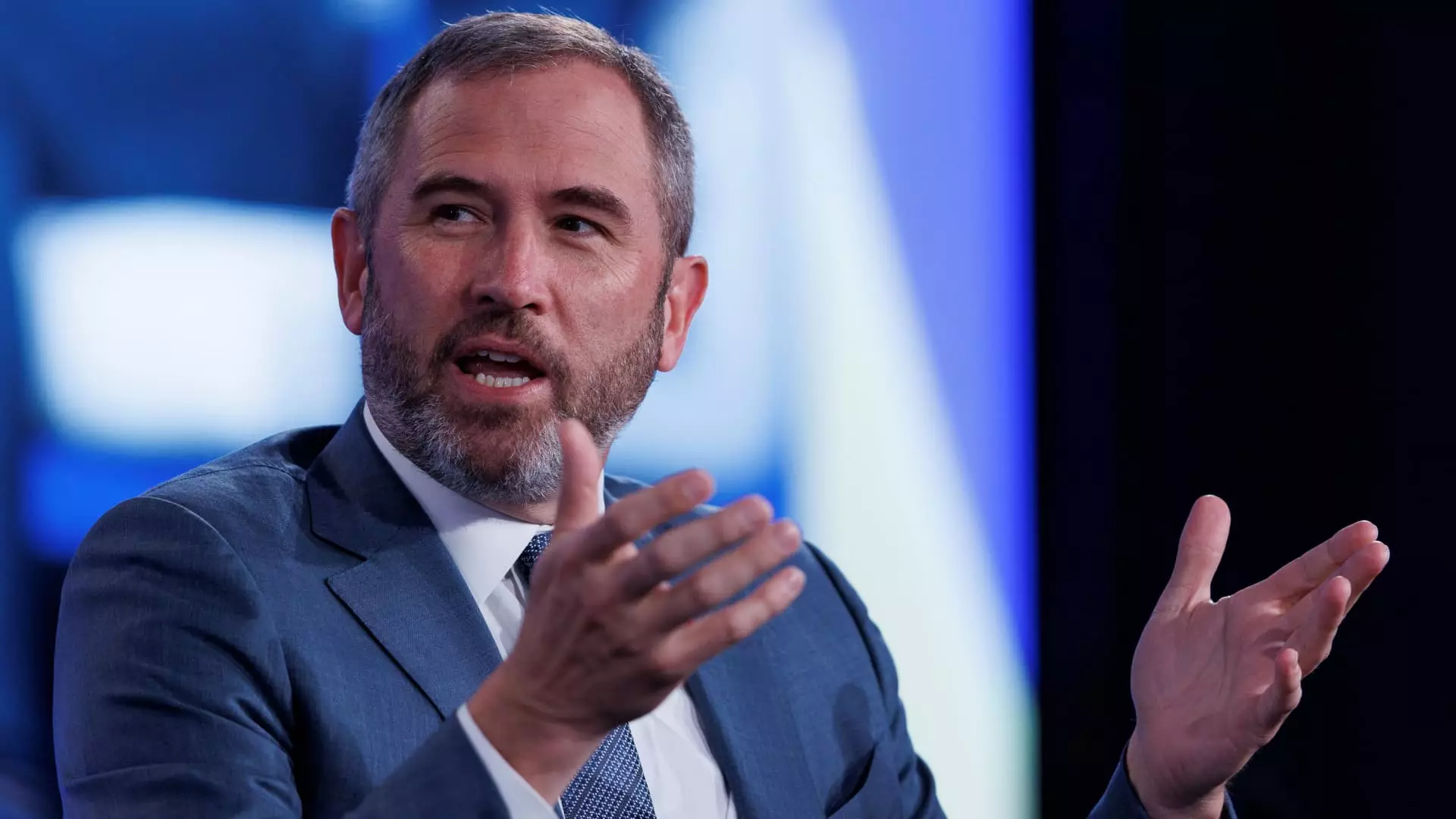The evolving landscape of cryptocurrencies and blockchain technology marks a pivotal time in the financial world. As major players like Ripple Labs advocate for a future where innovation is prioritized, the U.S. political climate offers both challenges and opportunities for stakeholders within the crypto sphere.
Brad Garlinghouse, CEO of Ripple Labs, represents a voice of optimism amidst a backdrop of skepticism regarding crypto regulation in the United States. In a recent dialogue at DC Fintech Week, Garlinghouse expressed hope for a forthcoming shift in Congress that could favor the cryptocurrency industry. He termed the upcoming election as “the most important” while asserting his belief that, regardless of electoral outcomes, a shift toward a more pro-crypto legislative body is imminent.
This assertion is noteworthy not only for its bullish sentiment but also for its implications for the global operations of Ripple. With approximately 95% of Ripple’s transactions occurring outside of U.S. borders, Garlinghouse acknowledges that regulatory ambiguity in Washington has impelled the company to seek business outside of the U.S. This circumstance emphasizes the critical role that regulatory clarity plays in fostering innovation and participation within the realm of cryptocurrencies.
The legal trials faced by Ripple, especially the high-profile lawsuit initiated by the U.S. Securities and Exchange Commission (SEC) in 2020, underscore the complexities of the regulatory environment. In a significant development for Ripple and its supporters, a recent ruling indicated that XRP, Ripple’s native token, is not classified as a security when sold to retail investors on exchanges. This verdict provided a glimmer of hope for proponents of cryptocurrencies, illustrating how judicial interpretations can shape the trajectory of the entire sector.
However, Garlinghouse’s recommendations to fintech startups—specifically to incorporate outside the United States—signal a stark reality. The uncertainty surrounding U.S. regulations suggests that companies may find themselves better positioned for growth and innovation in more crypto-friendly jurisdictions. The innovation landscape could be stifled if the regulatory framework in the U.S. remains overly restrictive or hostile.
A Divided Political Landscape
As sentiments become more polarized, Garlinghouse’s comments on political affiliations reveal a deeply intertwined relationship between politics and crypto advocacy. He indicated that the Trump and Harris campaigns have adopted contrasting approaches to cryptocurrencies, thereby affecting public sentiment and prospective policies. While the former president has publicly embraced the crypto movement, exhorting his title as the “crypto president,” Harris’s stance has remained cautiously nuanced, raising concerns among pro-crypto advocates.
Garlinghouse’s acknowledgement of Harris’s history with technology advocates hinted at a potential shift. However, lingering fears within the crypto community revolve around the possibility of continued regulatory scrutiny under her administration. Referring to this trepidation, Garlinghouse stated that the current administration has approached the sector with hostility. His use of “Operation Chokepoint 2.0” to describe the constricting measures banks are imposing on cryptocurrency businesses highlights the dire implications of punitive policies.
Despite Garlinghouse’s criticisms of the current administration, he expresses confidence in the potential for a “reset,” regardless of the election’s outcome. The call for progress—even amidst differing opinions on how substantial that progress might be—hints at resilience within the cryptocurrency sector. Industry stakeholders are encouraged to adapt and innovate as legislation evolves.
Moreover, Garlinghouse’s recent endorsement of John Deaton, an attorney targeting a seat against long-standing Senator Elizabeth Warren, reinforces his intent to play an active role in shaping the pro-crypto narrative within political contexts. Warren’s historical opposition to the crypto industry, advocating for increased oversight, has fueled concerns for those who envision a burgeoning crypto economy.
The unpredictability surrounding crypto regulations in the U.S. presents both challenges and opportunities. As influential figures like Brad Garlinghouse steer conversations about the future, the confluence of political shifts, societal sentiment, and industry advocacy will significantly shape the trajectory of the cryptocurrency landscape. Though the road ahead may be tumultuous, there lies the promise of innovation, progress, and a more welcoming environment for cryptocurrencies. Stakeholders must remain vigilant and engaged, as the interplay between technology and regulation will define the industry’s evolution in the years to come.

